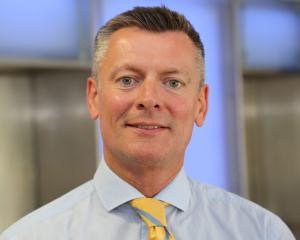
And yesterday’s announcement by Prime Minister Jacinda Ardern was made a little sweeter for some in the early childhood education sector.
Minister of Education Chris Hipkins’ pre-Budget announcement included a $151.1million funding boost over four years for early learning services to raise the minimum salary for qualified teachers — now as low as $45,491 a year — to $49,862, bringing them in line with kindergarten teachers’ pay.
New Zealand Educational Institute national executive member and Dunedin representative Byron Sanders said early childhood centre teachers welcomed a step towards recognising "a teacher is a teacher is a teacher".
"It should not matter the age of the children that a teacher is teaching, but they should all be valued for the professionalism and skills that they bring to that role."
However, there was still more work to do for the sector after tough times throughout Alert Levels 3 and 4, when a lack of parental fees had "left a significant shortfall" for early childhood education providers trying to meet salary requirements, or pay rents and other utility bills, he said.
"I think what [the lockdown] really has illustrated ... is that the privatisation model has not been a successful one for early childhood education," Mr Sanders said.
"They shouldn’t have to rely on parental fees in order to provide a quality teaching and learning programme."
Meanwhile, despite a "very cautious" following of "every guideline", Dunedin Kindergartens general manager Christine Kerr said the city’s kindergartens would be "nice and flexible, to work with parents" as children returned on Monday.
Otago Primary Principals’ Association president Shelley Wilde said schools "would have been very surprised" if yesterday’s announcement of a return to school next week was any different.
"It is under a new safe normal that we are happy to return," she said.
"Probably the biggest challenge for us will be, not so much the teaching and the classroom, it will be the new normal of expectations about how groups of parents or visitors congregate at schools.
"Even just at the beginning, or end, of a school day, at primary schools you have a lot of adults congregating, chatting, coming into schools. That side is going to be a little bit different."
Classroom layouts, timetables, entrances and exits could all undergo some changes when school resumed, Otago Secondary Principals’ Association president Linda Miller said, as schools planned to "provide as safe an environment as possible for staff and students".











